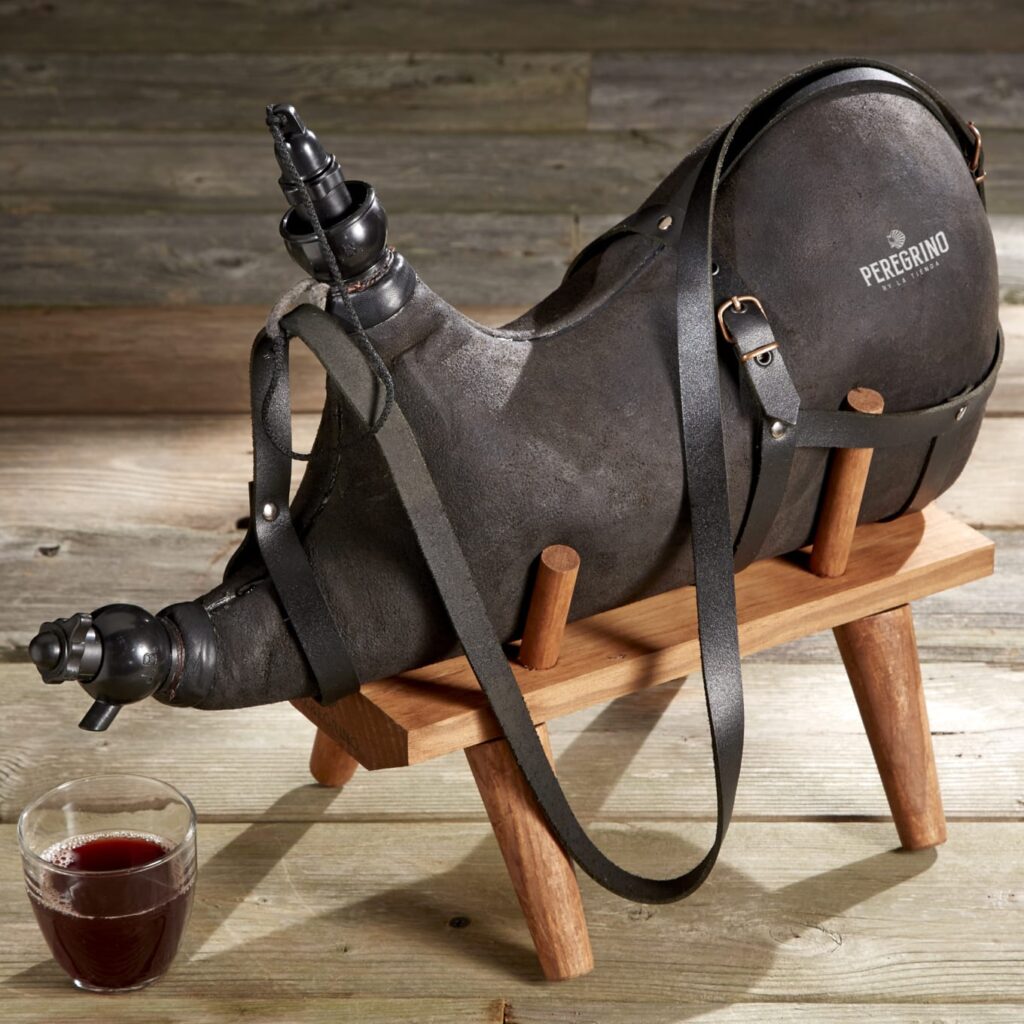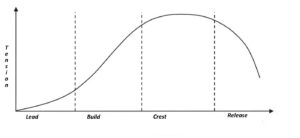Back in the day, it wasn’t a great idea to store new wine in old wineskins. As the new wine fermented, it would put pressure on the wineskin, which was fine for new, stretchy wineskins, but would burst the old, brittle ones.
What are today’s old wineskins? Perhaps a better question: who are today’s old wineskins?
Isn’t this more about the fixed, limiting beliefs that will burst under the pressure of new wine? The old ways of doing things that cannot adapt to the new? The people who are breaking open under the influence of digital intoxication? The various environmental changes that are reshaping the little, brittle planet we fly on?
It could be about the “best” practices we believe in: methods of doing things that are getting bigger, better, and faster all the time. Ways we do stuff that aren’t sustainable given the old bottles inside which we’re doing them. Just because AI can do it, why do we believe our old bottles are suddenly new?
Here are a few examples:
- Marketing, which always used to be organic, is now about the size of the list and the social media audience, the likes and follows and subscriptions and views and engagement, none of which are truly engaging nor authentic.
- Sales are more about the lowest common denominator low-hanging fruit mass market appeal of the seller, than about what’s best for the buyer.
- Commercials and advertising pander to those most likely to use old bottles.
- Mindset and emotional intelligence are quick-fix bandages, not of themselves new skins.
We cling to old bottles when we print more money without basis and then rob people of their wealth through taxation. Old bottles steal our time on endless digital networking events. The print and digital media make money by cramming more and more of our attention into their old bottles, then lying about it to gain our trust. Old bottles burst under the strain of endless content, including articles like this one.
Old bottles look like the elevator pitch and the mindset that can’t grasp anything bigger. Old bottles feel like distress, depression, anxiety, and trauma. Old bottles sell at a discount, are always going out of business, offer money back if not completely satisfied, and promise impressive returns. Objects in the mirror are closer than they appear; your results may vary; past performance is no guarantee of future results. Old bottles.
And the new wine? Apple hasn’t had a new product since the iPhone. Electric cars? Now we have a battery disposal and lithium shortage problem. Car makers peddle trucks to avoid investing in better cars that must meet higher environmental standards. Robotic everything powers the economic divide. We’re meant to lust after the next Marvel movie, not the truly new and revolutionary movie.
Real wages? Flat for decades. Entertainment? Creativity? Innovation? Is this what self-determination and self-interest have brought? None of us are truly self-determined, nor are our interests honored in the marketplace, the halls of government, or by the media.
Under the weight of all that, who would know about any new wine? And that’s how the powers that be want it to be. New ideas threaten that power, even when they help cool and clean up the planet, advance human rights and lessen human suffering, pivot from war to reciprocity, mend broken relationships.
And yet, there is new wine. It’s being made constantly, but only the winemakers know it. It’s hard to find, difficult to appreciate, and doesn’t sell on the open market. It comes with new wineskins that sound like compassion, empathy, equity, and acceptance…and many other crucial qualities that are a hard sell in the old bottle mindset.
For example, when the rest of the world looks at cryptocurrency and perceives an economic threat, people who form the culture of cryptocurrency understand the potential for a worldwide, transformed economy free of the vice grip of unelected currency manipulators.
That’s a complicated example, so I’ll offer simpler ones:
- If you bought a quick-fix, it’s an old bottle.
- If “quantum,” “frequency,” “vibration,” or “energy” are part of your solution, it’s an old bottle.
- You’re clinging to old bottles if you require divination, psychotherapy, or religion in any of their various forms.
- If there’s an acronym in its name, it’s an old bottle.
This is NOT to say that, for example, quantum physics and quantum gravity are not new or that religion, psychology, and energy work don’t work. The point here is that we’ve become so acculturated to using these things as bandages that we have forgotten how to deal with what keeps wounding us. And, while wounded, we can’t make new wine or new bottles.
You see, we are literally clinging to our old skins. Patching them up where they bleed. Setting their bones when they break. Fighting against their diseases, pushing their limits, fiddling with their diets, messing with their biochemistry, neuroplasticity, and epigenetics. And, like Copernicus, we do all this with the hubristic belief that we are at the center of it all, in control of what orbits around us.
That’s old-bottle thinking. It has served us well, but it’s bursting now.
Why?
The refill mentality that powers our world is blowing all those old bottles apart all by itself.
This opens space for new winemakers and new bottle makers. Even though there’s only a little wine that’s truly new right now, it is enough. When people taste it, their whole sense of intoxication changes, transforming their old skins to new ones.
We see this in recognizing post-traumatic growth, an ancient Stoic practice that Science has finally gotten around to “discovering.”
We see this in the post-modern reinvigoration of a metaphorical, paradoxical perception of the world’s spiritual wisdom and in a growing current understanding that aligns not with fundamentalism but with first peoples’ practices before those practices became political power tools.
Which will you choose?
Will you buy the quantum frequency vibration energy from people who understand very little of it? Start a life hack? Get more one on one face time with an expert or clinician or soothsayer? Old bottles! Use them at your own risk. Mostly, it’s an honest attempt to help you make things bearable, if not better.
Or…
Will you stop liking, subscribing, consuming, and clicking into those webinars, lead magnets, one-of-a-kind offers today only, and endless netwasting events that boost nothing except the algorithmic drip we call “monetization” and siphon monthly fees from our tank of resources?
Do you see what I’m getting at here? If you do, do something skillful about it. Please. Or not. Be part of the post-modern social economy if you must – it’s easier after all, and I understand more of us must stay stuck to keep the lights on – or join the meta-modern organic new wine and new bottles civilization taking root now.
A sign over the exit ramp at Disneyland’s Indiana Jones ride reads: “True rewards await those who choose wisely.” I hope you do.
_____________________________
Over the course of more than 40 years of paying attention to how music works on us, Bill Protzmann re-discovered the fundamental nature and purpose of music. For many years, Bill has experimented with what he learned through performing concerts, giving lectures, facilitating workshops, and teaching classes. For example, he first published on the powerful extensibility of music into the business realm in 2006 (here and abstract here). Ten years later, in 2016, he consolidated his work into the Musimorphic Quest. In this guided, gamified, experiential environment, participants discover and remember their innate connection to this ancient transformative technology. Also, The National Council for Behavioral Healthcare recognized Bill in 2014 with an Inspiring Hope award for Artistic Expression, the industry equivalent of winning an Oscar.



